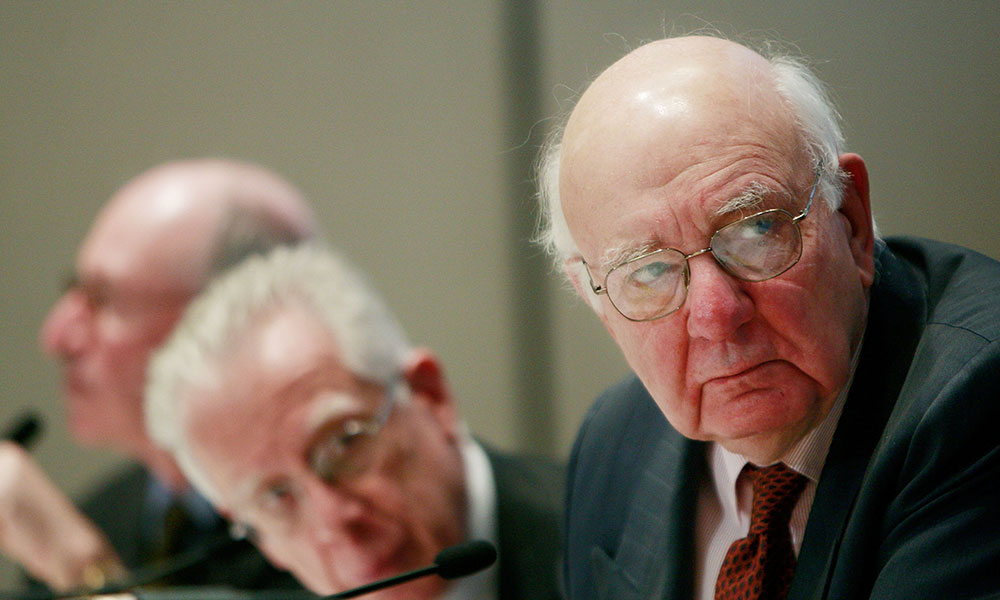
Portion of Volcker Rule Eased After Association’s Lawsuit
The American Bankers Association, which seeks to block a portion of the Volcker rule it said negatively affected its members, appears ready to drop its lawsuit after federal regulators made an exception for a type of financial instrument held by many small banks.
The American Bankers Association, which seeks to block a portion of the Volcker rule it said negatively affected its members, appears ready to drop its lawsuit after federal regulators made an exception for a type of financial instrument held by many small banks.
The rollout of the 2010 Dodd–Frank Wall Street Reform and Consumer Protection Act’s Volcker rule—being closely watched by the banking industry—just faced its first rollback.
On Tuesday, five federal regulatory groups agreed to allow small banks to continue utilizing a financial instrument originally barred by the rule due to the direct financial hit local banks nationwide would take as an unintended consequence.
It’s the first setback for the rule, named for former Federal Reserve Chairman Paul Volcker, that was implemented in this form last month. But it might not be the last—the regulations are expected to face a lot more pushback from industry groups.
Some quick background on the situation:
What was at stake: According to the American Bankers Association, the rule’s provision banning the holding of collateralized debt obligations backed by trust-preferred securities (TruPS CDOs) put undue pressure on small banks. Many banks invested in TruPS CDOs prior to the 2008 financial crisis, and the ABA argued that smaller banks would have to rush into taking millions in losses on their holdings to comply with the rule. One banking chain in particular—Utah-based Zions Bancorp—said that the Volcker rule would end up costing it $387 million. This, critics argued, went against the spirit of the rule, which was intended to change the behaviors of large banks while leaving smaller banks alone.
The changes allowed: Regulators will allow banks to continue to hold CDOs established before May 2010 and obtained before the regulation was put in place last month, providing they meet conditions meant to ensure they’re issued by banks with assets of less than $15 billion, Bloomberg reports. The interim final rule, which affects 86 different TruPS CDOs, will be adopted on an temporary basis, allowing for a 30-day public comment period on the change.
An association reacts: The ABA, which had sued to prevent the TruPS CDO rule from taking effect, was largely positive about Tuesday’s decision. “ABA commends the regulators’ speed and judiciousness in revisiting the impact of the Volcker rule,” President and CEO Frank Keating said in a statement. “Their action today should allow banks to avoid taking millions of dollars in unexpected and unnecessary write downs. The inclusion of a list of issuers that meet the test of the interim final rule is also appreciated, and will help minimize the cost and compliance burden on affected banks.” Although the association pulled back a request for emergency relief from the rule, the ABA said on Wednesday that it would hold off on withdrawing the lawsuit “to allow time to consult with our membership and finalize our analysis of the impact and implications of the interim final rule.”
More Volcker rule changes may be forthcoming: Groups such as the Financial Services Roundtable and the Securities Industry and Financial Markets Association have asked regulators to consider the rule’s impact on collateralized loan obligations (CLOs)—a topic that was the subject of a House Financial Services Committee hearing on Wednesday.
Former Federal Reserve Chairman Paul Volcker, right, the namesake of the Volcker Rule. (photo by Mario Tama/Getty Images)






Comments